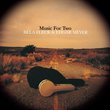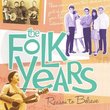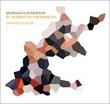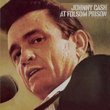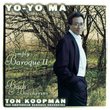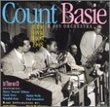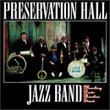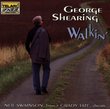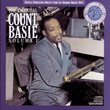| All Artists: Duke Ellington Title: Braggin' in Brass: The Immortal 1938 Year Members Wishing: 1 Total Copies: 0 Label: Portrait Masters / CBS / Sony Release Date: 10/25/1990 Genre: Jazz Style: Swing Jazz Number of Discs: 2 SwapaCD Credits: 2 UPCs: 074644439540, 074644439526 |
Search - Duke Ellington :: Braggin' in Brass: The Immortal 1938 Year
CD DetailsSimilarly Requested CDs
|
CD ReviewsOne of the peaks preceeding the summit of 1940 bukhtan | Chicago, Illinois, USA | 03/18/2004 (4 out of 5 stars) "This package, actually two CD's, includes most of the the full orchestra recordings of the year 1938, recorded mostly by Brunswick and Vocalion. A few vocal numbers are omitted, as well as the small band recordings (the latter are available on a two-CD package "Small groups", also sold by Sony).
This music, created shortly before the arrival of Ben Webster and Jimmy Blanton and before Billy Strayhorn had really assimilated to the Ellington organization, doesn't quite match the individulistic flair shown in such early Thirties pieces as "Mood Indigo", "Slippery Horn" or "Saddest Tale", and certainly doesn't equal the synthesizing imagination of 1940 - 1942. Nonetheless, the performances roll through the year at a very high level, certainly outclassing the music of other big bands of the time. You might fault Duke, a little, for worrying too much about what the so-called King of Swing, Benny Goodman, was up to, when he produced such sides as "Buffet Flat" and "Hip Chic". Remember, though, that big bands were expensive and Duke didn't have the manouver room available to Miles or Mingus in the Fifties and Sixties; dance and airshot dates mandated that he compromise a bit. And of course this attentiveness to popular trend is part of the fascination of Ellington. High points include: "the New black and tan fantasy", a two side remake of the 1926 classic, Johnny Hodges in "Gal from Joe's", Cootie Williams in "Riding on a blue note", Barney Bigard (and Duke) in the meditative and lyrical"Blue light", "Braggin' in Brass", as especially inventive permutation of "Tiger Rag", Ivie Anderson and Lawrence Brown in "Rose of the Rio Grande", Harry Carney's baritone performance in "Slap Happy" (no slapping here) and Rex Stewart's half-valving in the "freak song" "Boy meets horn", also known as "Twits and Twerps". The liner notes were written by Nat Hentoff. This release fails to get the five star rating because of muffled sound, due to heavy noise reduction and maybe multiple tape/lp transfer. The liner notes say "digitally remastered from the original analog tapes" which is of course nonsense in this context. It appears to derive from one of a group of four packages released on LP in the late Seventies (see Eddie Lambert's book on Duke). We can hope that Columbia//Sony//Sony/BMG will follow their recent re-releases of "Masterpieces", "Uptown", and "Festival Suite" with a box set of the great Brunswick, Vocalion, Master & Columbia orchestral masterpieces which they've buried all these years, forcing us to resort to Australian and European re-issues of this unique music. Listeners who have heard Sony's 1999 3-CD commemorative set "the Duke" know that a few of these great sides at least have been re-mastered. Why not all?" |


